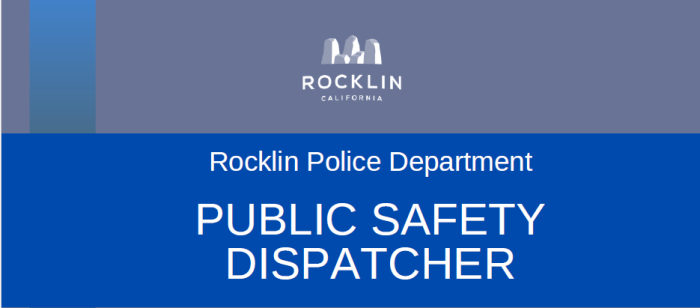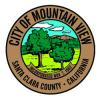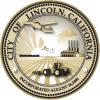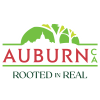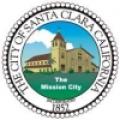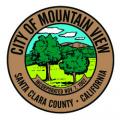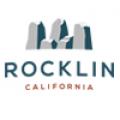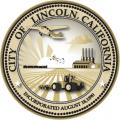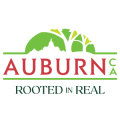Please note: This is an extension of an existing advertisement. If you have already applied, you do not need to re-apply.
The City of Lincoln is hiring an Application Integrator I/II/Senior in the Information Technology/Geographic Information Systems Department. Please note this is not a remote position.
- Application Integrator I: $6,112.47-$8,191.29
- Application Integrator II: $6,739.00-$9,030.91
- Application Integrator Senior: $7,429.75-$9,956.58
DEFINITION:
Under direction, plans, configures/develops, and manages information technology-related projects involving critical applications, large systems, databases, and sophisticated processes; provides team leadership, guidance, business, and technical expertise on assigned projects involving citywide computer systems; designs and/or creates database structures and data migration/conversion techniques for system(s) conversions or upgrades. Monitors and tunes databases to obtain optimum performance; creates and develops reports; applies analytical and advanced design techniques in developing and/or modifying new programs and/or systems; codes, configures and/or tests programs, and resolves related problems in large, complex systems; provides technical guidance to lower-level IT personnel and contractors through training, mentoring, and coaching. Performs other related duties as assigned.
DISTINGUISHING CHARACTERISTICS:
Application Integrator I
The Application Integrator I is the entry level class in this series and performs the more routine tasks associated with database and application projects. This classification may be alternatively staffed with the Application Integrator II, and incumbents may advance to the higher level after gaining experience and demonstrating a level of proficiency that meets the qualifications of the higher-level class.
Application Integrator II
The Application Integrator II is the journey level class responsible for the full range of duties associated with database and application projects. This classification is distinguished from the next higher classification of Senior Application Integrator in that the latter is an advanced journey level, performs the most complex assignments, and may have lead responsibilities.
Senior Application Integrator
The Senior Application Integrator is the advanced journey level and/or lead class responsible for a wide variety of complex database and application projects. Positions at this level are distinguished from other classes within the series by the level of responsibility assumed, complexity of duties assigned, independence of action taken, and by the amount of time spent performing the duties.
SUPERVISION RECEIVED/EXERCISED:
Application Integrator I
Receives direct supervision from the Chief Innovation and Technology Officer. Incumbents of this class do not routinely exercise supervision.
Application Integrator II
Receives supervision from the Chief Innovation and Technology Officer. Incumbents of this class do not routinely exercise supervision.
Senior Application Integrator
Receives general direction from the Chief Innovation and Technology Officer or his/her designee. May exercise technical and functional supervision over assigned staff.
ESSENTIAL FUNCTIONS: (include but are not limited to the following)
- Perform complex work related to database management and administration, including designing, configuring, and implementing databases infrastructure architecture, backup and recovery planning implementation, integrations, overseeing disk capacity of server and database infrastructure, and monitoring performance of assigned databases and servers; modifying and upgrading existing databases; coordinating, developing, and performing data export and import routines between applications; and creating and modifying query language scripts.
- Perform complex work related to application development, configuration, integration and administration, including designing, developing, overseeing, and implementing application and integration architecture; backup and recovery planning; and implementation, integration, performance monitoring, data analysis, modifying and upgrading existing solutions, creating and modifying applications utilizing programming languages including but not limited to HTML, JavaScript, PowerShell, JSON, SQL, and Python.
- Coordinates and monitors information technology operational systems for the City, including analyzing, diagnosing, maintaining, and troubleshooting assigned system areas, such as applications, operating systems, and database systems.
- Researches available technologies; assists in the development and administration of Requests for Proposal to acquire applicable departmental programs or systems from vendors in order to meet the identified needs; performs cost/benefit analyses of said systems; manages and executes installation upgrades and system patches; tracks problems and requests for system enhancement and equipment upgrades; identifies and recommends solutions related to the assigned program; and resolves problems as they occur.
- Assists with and performs installation of new and existing software, complex configuration duties, and related data migration, conversion, maintenance, and extraction work; performs modifications, testing, and implementation of vendor software; develops, coordinates, and implements plans to test business and functional processes during system development and quality assurance; participates in the design of all required system interfaces and reviews and monitors vendors’ work.
- Serves as a trainer for staff regarding new procedures and software applications; demonstrates the software application systems; prepares written procedures and training materials for staff; provides support for specific department applications; tests programs and applications from users’ perspective.
- Conducts systems analyses; develops business and technical requirements; designs functional and technical specifications, writes source code, and tests applications.
- Assists in the planning and coordination of migrations from legacy systems and the implementation of ongoing maintenance of new computer systems.
- Lead and manage complex projects involving multiple City departments.
- Acts as a technical resource for City staff; identifies and suggests alternatives and recommends process changes through information systems; assists in identifying potential required changes to business processes and/or procedures.
- Participates in defining requirements, development, design, and validation of new automated computer systems.
- Develops and runs custom reports using a variety of report applications and systems.
- Designs, writes, tests, and documents a variety of computer programs/report-writers using applicable programming languages.
- Prepares and maintains documentation and instruction; maintains and updates manuals, codebooks, templates, web pages, and related documents; follows recommended protocols and procedures.
- Creates and maintains users, user permissions, system privileges, passwords and other administrative tasks for assigned systems; monitors, logs, and files for evidence of problems and system issues; performs necessary backup/recovery activities at scheduled times.
PHYSICAL, MENTAL AND ENVIRONMENTAL WORKING CONDITIONS:
Position requires prolonged sitting, standing, walking, reaching, twisting, turning, kneeling, bending, squatting and stooping in the performance of daily activities. The position also requires grasping, repetitive hand movement and fine coordination in keeping records and preparing reports using a computer keyboard. Additionally, the position requires near and far vision in reading written reports and work-related documents and acute hearing is required when providing phone and personal service. The nature of the work may require the incumbent to lift equipment and materials weighing up to 25 pounds or more.
KNOWLEDGE/SKILLS/ABILITIES: (The following are a representative sample of the KSAs necessary to perform essential duties of the position. The level and scope of the knowledge and abilities listed below vary between the I, II, and Senior levels.)
Knowledge of:
Advanced principles and practices of information technology systems, systems analysis, programming, design, and application documentation; current computer industry technology practices and trends, including system development and administration; principles and practices of systems analysis and programming; data import and export routines, and report writing applications; project management methodologies; principles and practices of business systems and workflow analysis; common application programming languages; standards and protocols for data communications and methodologies for database management; PC operations and networks; principles, practices, techniques and methods of LAN applications and operations; computer hardware, software, major operating systems and data communications; Microsoft database applications, Excel, and MS Office; troubleshooting techniques used in resolving operational problems with computer software; pertinent local, state, and federal laws, ordinances and rules; proper English, spelling, and grammar; occupational hazards and standard safety practices.
Skill to:
Operate an office computer and a variety of word processing and software applications.
Ability to:
Analyze requirements and procedures to determine the technical database requirements of applications analysts and users; effectively work with City employees from multiple departments, contract employees, and outside vendors to complete information technology projects; conduct analyses of alternatives; develop and review a technical support plan; write computer programs in accordance with established standards and practices; maintain and update highly technical and complex manuals, codebooks, and computer control tables; prepare and maintain documentation for systems procedures, such as network applications, troubleshooting, backup, and recovery procedures; develop standards and procedures to be used by other to efficiently utilize database facilities; analyze users’ requests and needs, and apply appropriate guidelines and resources to resolve them; provide technical expertise and knowledge in design, implementation, and maintenance of database management systems; optimize existing data access and availability; troubleshoot and accurately diagnose a wide variety of software, hardware, and LAN problems; design and program a variety of database and specialized software utilizing standard programming languages; communicate effectively and explain software usage to computer users of all skill levels; train and instruct others in application and database procedures; respond appropriately, effectively, and promptly to the needs of internal and external customers using principles of good customer service.
THE SELECTION PROCESS
The process may include an in-basket exercise, individual interviews, panel interviews and/or other related components. Only those candidates who have the best combination of qualifications in relation to the requirements and duties of the position will continue in the selection process. The candidate selected for the position will be required to complete a background check including reference checks, fingerprint check, medical exam, drug-screening and/or other related components.
Human Resources will make reasonable efforts in the examination process to accommodate persons with disabilities. Please advise Human Resources of any special needs a minimum of five days in advance of the selection process exam by calling (916) 434-3229 or emailing hr@lincolnca.gov. The City of Lincoln is an Equal Opportunity Employer.
The information contained herein is subject to change and does not constitute either an expressed or implied contract.
